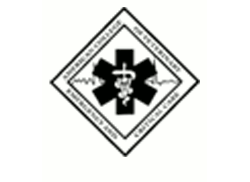This time of year, the Emergency & Critical Care Team at AES starts to see an influx of pets suffering from mushroom intoxication. The cool, moist Northwest climate favors a variety of mushroom species ranging from non-toxic to potentially deadly. Of the five thousand or so species of mushrooms in the United States, roughly one hundred are responsible for most cases of poisoning. Amanita species are one of the most deadly and grow particularly well in association with the fir, madrona, and spruce trees common in Western Washington. However, many other species of poisonous mushrooms also thrive in this area and can cause a variety of symptoms when ingested. The majority of mushroom poisoning patients seen at AES are dogs less than one year of age. We rarely see mushroom intoxication in cats or older dogs.
What can pet parents do to minimize the risks of mushroom poisoning? As is often the case, prevention is the best medicine! If you see mushrooms growing in your yard, get rid of them. They are often easy to spot and scoop up during your daily waste cleanup routine. If you go on trails or hikes with Fido, keep him on a leash. Keep an eye of Fluffy when she is outdoors to make sure she isn’t foraging for snacks.
After ingestion of poisonous mushrooms, symptoms may occur in as little as two hours or may be delayed up to 12 hours. Common signs of mushroom poisoning include: abdominal pain or tenderness, vomiting and diarrhea—with or without blood, excessive drooling or tear production, dilated pupils, altered mentation, significantly slowed heart rate, jaundice (yellowing of the whites of the eyes or mucous membranes), muscle tremors, seizures, and coma.
If you suspect your pet may have eaten mushrooms, call your family veterinarian or AES right away! If possible, collect samples of the mushrooms your pet ingested and bring them along with you. Identification of the mushroom can often aid in and speed up treatment. For more information on identifying toxic plants, click on the link to the ASPCA website under Common Household Toxins.
Although mushroom intoxication is potentially serious, the prognosis with treatment is generally good. Most patients will recover within 12 to 24 hours after treatment. As always, if you have any questions, give AES a call at 425.827.8727. We are always here for you!




